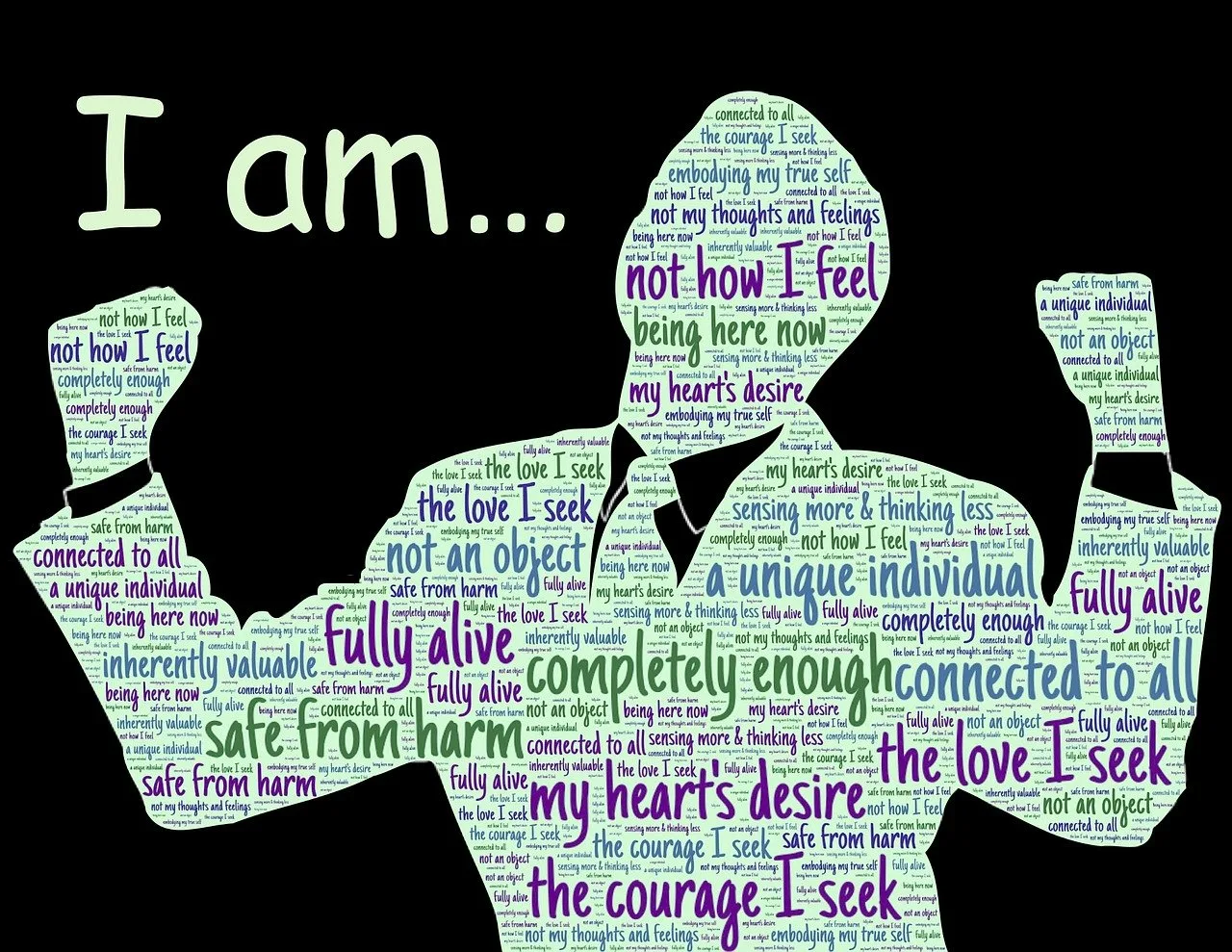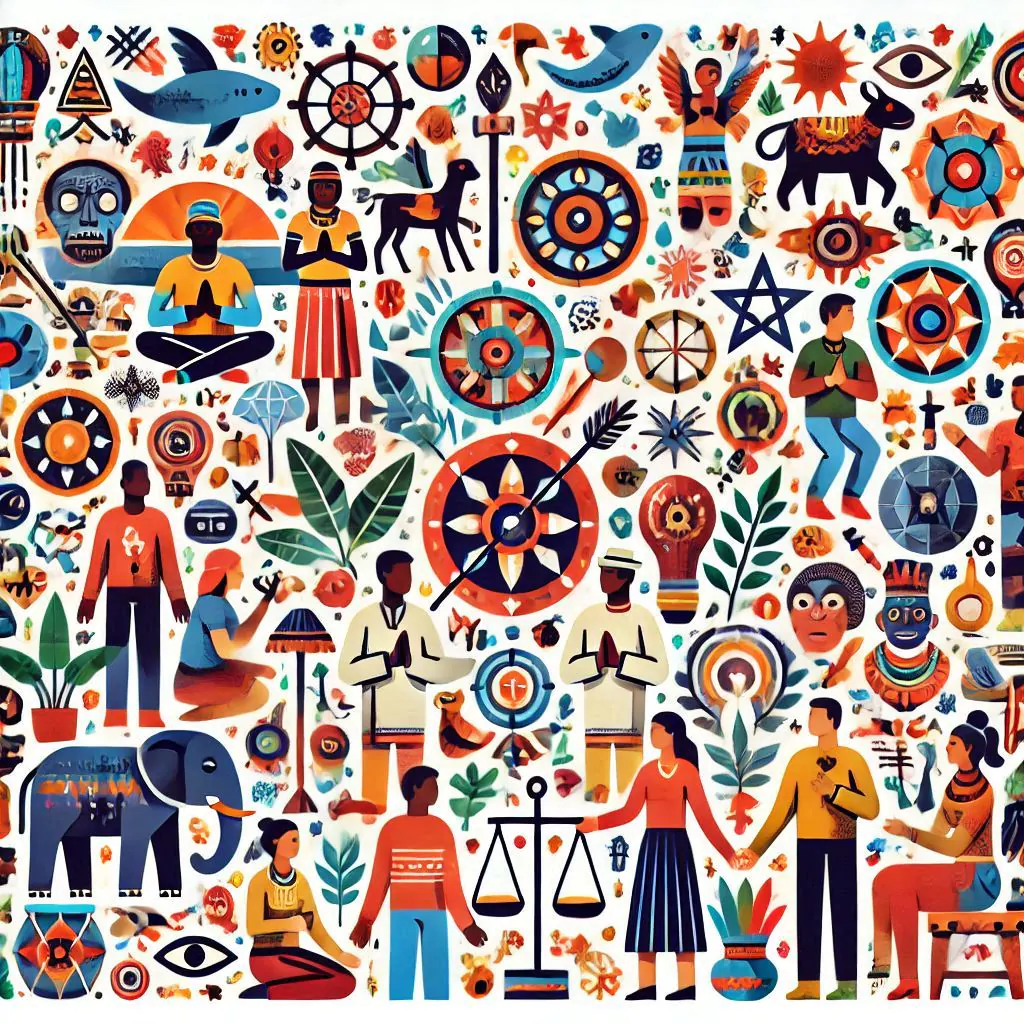Last Updated on July 18, 2024 7:54 am
Unveiling the Power of Belief: Debunking Superstitions and Embracing Rationality

Introduction to Beliefs and Superstitions
As human beings, we are inherently driven by our beliefs and perceptions of the world around us. These beliefs can stem from a variety of sources, including our cultural upbringing, personal experiences, and the influence of those closest to us. While some beliefs are grounded in logic and reason, others can be classified as superstitions – irrational notions that defy scientific explanation.
In this article, we will embark on a journey to explore the complex interplay between beliefs and superstitions, delving into the underlying factors that shape our perspectives and the implications they hold for our lives. By shedding light on the differences between beliefs and superstitions, we will uncover the power of rational thinking and the benefits of embracing a more evidence-based approach to life.
Understanding the Difference Between Beliefs and Superstitions
At the outset, it is crucial to establish a clear distinction between beliefs and superstitions. Beliefs are often rooted in personal experiences, cultural traditions, or religious teachings, and they serve as the foundation for our understanding of the world. These beliefs can provide a sense of meaning, purpose, and comfort, and they can shape our decision-making processes and guide our actions.
On the other hand, superstitions are irrational notions or beliefs that are not supported by empirical evidence. They are often based on the idea that certain actions or events can influence or predict outcomes, despite a lack of scientific causal relationship. Superstitions can range from avoiding black cats to knocking on wood, and they can have a significant impact on our behavior and decision-making. The origins of superstitions can be traced back to the earliest human civilizations, where individuals sought to make sense of the world and its mysteries through the lens of the supernatural. From ancient rituals and rites to the belief in omens and portents, superstitions have been a persistent feature of human culture throughout history.
One of the primary drivers behind the development of superstitions is the human desire to find patterns and establish a sense of control in an often unpredictable and chaotic world. By attributing certain events or outcomes to supernatural forces, individuals could feel a greater sense of understanding and predictability in their lives.
Additionally, the transmission of superstitions through oral traditions, cultural narratives, and societal norms has played a crucial role in their perpetuation. As beliefs and superstitions are passed down from generation to generation, they become deeply ingrained in the collective consciousness of a community, making them challenging to uproot and replace with more rational explanations.
The Cultural, Regional, and Ethnic Factors Influencing Beliefs and Superstitions
Beliefs and superstitions are heavily influenced by the cultural, regional, and ethnic contexts in which we are embedded. Different societies and communities around the world have developed unique belief systems and superstitious practices that reflect their histories, traditions, and worldviews.
As we have discussed, the cultural, regional, and ethnic contexts in which we are embedded have a significant influence on the beliefs and superstitions that shape our worldviews. These variations can be observed across different societies, communities, and even within the same geographic regions.
For example, in some Latin American cultures, the belief in the “evil eye” (mal de ojo in Spanish) is widespread, with individuals taking various precautions to protect themselves and their loved ones from this perceived supernatural threat. Similarly, in certain Asian cultures, the number “4” is considered unlucky due to its phonetic similarity to the word for “death” in some languages. In some Asian cultures, the number “4” is considered unlucky due to its phonetic similarity to the word for “death” in certain languages. Conversely, in Western cultures, the number “13” is often associated with bad luck. These cultural and regional differences in beliefs and superstitions demonstrate how our perceptions of the world are shaped by the environments in which we grow up and the narratives we are exposed to.
As we have explored, the cultural, regional, and ethnic contexts in which we are embedded have a profound influence on the beliefs and superstitions that shape our worldviews. These variations in belief systems can have far-reaching implications, impacting everything from individual decision-making to societal norms and institutions.
For example, in some cultures, the belief in the power of ancestral spirits or the influence of astrological forces may be deeply ingrained, leading individuals to make decisions or take actions based on these supernatural beliefs. Conversely, in more secular or scientifically-oriented societies, such beliefs may be viewed with skepticism or even outright rejection.
Understanding and respecting these cultural, regional, and ethnic differences in beliefs and superstitions is crucial for fostering cross-cultural understanding and promoting more inclusive and equitable decision-making processes. By acknowledging and addressing the diverse perspectives and belief systems that exist within a given context, we can create an environment that is more receptive to rational inquiry and evidence-based reasoning.
These cultural, regional, and ethnic differences in beliefs and superstitions highlight the diverse ways in which human beings have sought to make sense of the world around them. Understanding these variations can foster greater cross-cultural understanding and appreciation for the rich tapestry of human experiences and perspectives.
The Psychological Reasons Behind Beliefs and Superstitions

As we have explored, the psychological factors that contribute to the formation and perpetuation of beliefs and superstitions are multifaceted and complex. Cognitive biases, emotional needs, and the desire for control and predictability all play a role in shaping our perceptions and behaviors.
One of the key psychological mechanisms behind superstitious thinking is the “illusion of control,” where individuals believe they can influence outcomes through their actions, even in situations where there is no causal relationship. This cognitive bias can lead to the development of rituals, routines, and other superstitious behaviours as individuals attempt to exert control over uncertain situations.
Additionally, the human need for meaning and belonging can fuel the embrace of beliefs and superstitions. When faced with the uncertainties and complexities of life, individuals may turn to belief systems or supernatural explanations to provide a sense of order, purpose, and community. This psychological need can be particularly strong during times of stress, anxiety, or significant life transitions. Fostering a rational mindset and embracing critical thinking is essential in the journey of challenging beliefs and superstitions. This process involves actively questioning our assumptions, seeking out objective evidence, and cultivating a willingness to change our perspectives in the face of new information.
One key step in nurturing a rational mindset is to develop a habit of questioning our own thoughts and beliefs. This can involve regularly examining the sources and reasoning behind our convictions, and being open to the possibility that our beliefs may be influenced by cognitive biases or incomplete information. Additionally, cultivating a curiosity for learning and a willingness to engage with diverse perspectives can help us broaden our understanding and challenge our own preconceptions. By seeking out scientific explanations, engaging with experts, and exploring alternative viewpoints, we can develop a more nuanced and evidence-based understanding of the world around us.
Delving deeper, the psychological factors that contribute to the formation and perpetuation of beliefs and superstitions are equally intriguing. Researchers have identified several cognitive biases and psychological mechanisms that can lead individuals to embrace irrational beliefs and superstitious thinking. One such cognitive bias is the “illusion of control,” where individuals believe they can influence outcomes through their actions, even in situations where there is no causal relationship. This tendency can lead to the development of superstitious behaviours, such as carrying a lucky charm or performing a specific ritual before a significant event. Another factor is the human desire for predictability and control in a world that can often feel chaotic and unpredictable. Superstitions can provide a sense of perceived control, offering individuals a false sense of security and the illusion of being able to predict and influence the future.
Debunking Common Superstitions with Rational Explanations
Having explored the underlying factors that contribute to beliefs and superstitions, it is time to confront some of the most pervasive superstitions and debunk them with rational explanations grounded in science and empirical evidence.
- Black Cats: The belief that black cats bring bad luck is often attributed to historical associations with witchcraft and the occult. However, there is no scientific evidence to support the notion that the colour of a cat’s fur has any bearing on one’s fortune or well-being.
- Breaking Mirrors: The superstition that breaking a mirror will bring seven years of bad luck stems from the belief that mirrors contain a person’s soul. In reality, the act of breaking a mirror is simply the result of an accidental physical event, with no supernatural consequences.
- Walking Under Ladders: This superstition is believed to have originated from the association of ladders with the Christian Holy Trinity, but there is no logical reason why walking under a ladder would bring bad luck. Also, Egyptians believed that walking under the space between ladder and wall brings bad luck and was possessed by good and evil spirits.
- Wishing on a Shooting Star: Seeing a shooting star allows you to make a wish. Shooting stars (meteoroids burning up in Earth’s atmosphere) are awe-inspiring. The tradition of making wishes likely stems from ancient beliefs that celestial events held significance. While it’s delightful, it doesn’t affect reality.
- Crossing Fingers for Luck: Crossing your fingers is a way to wish for good luck. The gesture likely originated from early Christian practices. Crossing fingers symbolized invoking divine protection. Today, it’s a common expression of hope or anticipation, but not a magical charm.
- Opening an Umbrella Indoors Brings Bad Luck: Unfurling an umbrella indoors is considered unlucky. This superstition likely originated from practical reasons. Opening an umbrella indoors can be hazardous—knocking over objects or poking someone accidentally. There’s no mystical force at play; it’s just about avoiding accidents.
By challenging these common superstitions and providing rational explanations, we can begin to shift our mindsets and embrace a more evidence-based approach to understanding the world around us.
The Impact of Beliefs and Superstitions on Society and Individuals
The influence of beliefs and superstitions on our lives can be far-reaching and profound. At the societal level, deeply entrenched beliefs and superstitions can shape cultural norms, impact decision-making processes, and even perpetuate harmful stereotypes or prejudices. For individuals, the impact of beliefs and superstitions can be equally significant. Superstitious thinking can lead to anxiety, stress, and an inability to make rational decisions, as individuals become preoccupied with avoiding perceived “bad luck” or engaging in rituals to ensure perceived “good luck.” Moreover, the belief in the supernatural or the existence of forces beyond our control can hinder our ability to take responsibility for our actions and make informed choices. This can have far-reaching consequences, from personal relationships to professional endeavours and even public health and safety.
The influence of beliefs and superstitions on our decision-making processes cannot be overstated. These deeply held convictions can shape our perceptions, inform our judgments, and ultimately guide the choices we make in our personal and professional lives. When individuals are heavily influenced by superstitious thinking, their decision-making can become skewed, leading to suboptimal outcomes. For example, a person who believes that a certain number is “lucky” may make financial decisions based on this superstition, rather than on a rational analysis of the available data and market conditions.
Conversely, beliefs that are grounded in logic and reason can provide a solid foundation for making informed and effective decisions. By approaching decision-making with a critical and evidence-based mindset, individuals can better navigate complex situations, weigh the pros and cons of their options, and ultimately make choices that align with their values and long-term goals.
Challenging Beliefs and Superstitions – Promoting Critical Thinking and Rationality
In the face of the pervasive influence of beliefs and superstitions, it is crucial to cultivate a mindset of critical thinking and rational inquiry. This involves actively questioning our assumptions, challenging societal norms, and seeking scientific explanations for the phenomena we observe. By embracing a more evidence-based approach, we can begin to separate fact from fiction, and make informed decisions that are grounded in logic and reason. This process of questioning and challenging our beliefs can be uncomfortable, as it may require us to let go of deeply held convictions or confront the limitations of our own understanding.
However, the rewards of this journey are immense. By nurturing a rational mindset, we can develop a greater sense of personal agency, improve our decision-making abilities, and foster a deeper appreciation for the complexities of the world around us.
Embracing a Rational Approach to Life – The Benefits of Letting Go of Superstitions
As we navigate the complex landscape of beliefs and superstitions, the benefits of embracing a rational approach to life become increasingly apparent. By letting go of irrational notions and superstitious thinking, we can unlock a world of possibilities and unlock our full potential. One of the primary advantages of a rational mindset is the ability to make more informed and effective decisions. When we are not burdened by the constraints of superstitions, we can focus on gathering relevant information, analysing data, and weighing the pros and cons of our choices. This, in turn, can lead to better outcomes in various aspects of our lives, from personal relationships to professional endeavours.
Moreover, a rational approach to life can foster a greater sense of personal agency and empowerment. By understanding the true nature of the world around us, we can take responsibility for our actions and their consequences, rather than attributing them to external, supernatural forces. This can lead to a heightened sense of control and a greater ability to shape our own destinies.
The Role of Religion in Shaping Beliefs and Superstitions
Religion is another powerful force that has significantly influenced the formation and perpetuation of beliefs and superstitions throughout human history. Many religious traditions have incorporated supernatural elements, miraculous occurrences, and belief systems that defy scientific explanation.
While religious beliefs can provide a sense of meaning, purpose, and community for many individuals, it is important to recognize the distinction between religious beliefs and superstitious notions. Some religious teachings may incorporate elements of superstition, such as the belief in the power of certain rituals, amulets, or divine intervention in daily life. It is essential to approach the intersection of religion and superstition with nuance and respect. Individuals should feel empowered to critically examine their beliefs, while also respecting the personal and cultural significance of religious traditions. Finding a balance between rational thinking and the spiritual aspects of belief can be a profound and enriching journey.
Challenging Societal Norms: Questioning Beliefs and Superstitions
Embracing a rational approach to life often requires challenging the societal norms and cultural narratives that perpetuate beliefs and superstitions. This can be a daunting task, as deeply ingrained beliefs and superstitions are often reinforced through social pressure, institutional structures, and the inertia of tradition. However, by cultivating the courage to question and challenge these societal norms, we can pave the way for a more enlightened and evidence-based understanding of the world. This may involve engaging in respectful dialogues with family, friends, and community members, or even advocating for policy changes that promote critical thinking and rational decision-making.
It is important to approach this process with empathy and understanding, recognizing that beliefs and superstitions are often deeply personal and culturally significant. By fostering an environment of open and constructive dialogue, we can encourage others to re-examine their own assumptions and embrace a more rational approach to life.
Finding a Balance: Respecting Personal Beliefs While Embracing Rationality

As we navigate the complex landscape of beliefs and superstitions, it is essential to find a balance between respecting personal beliefs and embracing a more rational approach to life. This delicate balance acknowledges the deeply personal and cultural significance of beliefs, while also recognizing the importance of critical thinking and evidence-based reasoning. For some individuals, beliefs and spiritual practices may be an integral part of their identity and worldview, providing a sense of meaning, community, and personal growth. In such cases, it is crucial to approach these beliefs with empathy and respect, recognizing their value and significance, rather than dismissing them outright.
At the same time, it is important to encourage a critical examination of beliefs and superstitions, challenging individuals to consider the underlying evidence and rationale behind their convictions. This process of questioning and exploration can lead to a deeper understanding of one’s beliefs, and potentially a more nuanced and balanced perspective that incorporates both personal convictions and rational inquiry.
By finding this balance, we can create an environment that fosters mutual understanding, respect, and the continuous pursuit of knowledge and truth.
Conclusion: The Power of Belief in Shaping Our Lives
In conclusion, our beliefs and perceptions of the world around us have a profound impact on the way we navigate our lives. While some beliefs are grounded in logic and reason, others can be classified as superstitions – irrational notions that defy scientific explanation. By challenging these common superstitions with rational explanations and scientific evidence, we can empower individuals to question their beliefs, embrace a more evidence-based approach to understanding the world, and make more informed decisions in their daily lives.
The power of belief in shaping our lives cannot be overstated. Our beliefs, whether rooted in reason or steeped in superstition, have the ability to profoundly influence our thoughts, behaviors, and the trajectories of our lives. As we have explored throughout this article, the cultural, regional, and psychological factors that contribute to the formation and perpetuation of beliefs and superstitions are complex and multifaceted. Embracing a rational mindset and cultivating critical thinking skills are essential steps in the journey of challenging beliefs and superstitions. By actively questioning our assumptions, seeking out objective evidence, and engaging with diverse perspectives, we can develop a more nuanced and evidence-based understanding of the world around us. At the same time, it is important to recognize the deeply personal and cultural significance that beliefs and spiritual practices can hold for many individuals. Finding a balance between respecting these beliefs and encouraging rational inquiry is a delicate but necessary process, one that requires empathy, open-mindedness, and a genuine commitment to fostering mutual understanding.
As we move forward, it is my hope that this article has inspired you to re-examine your own beliefs and superstitions, and to embark on a journey of critical thinking and rational inquiry. By embracing the power of evidence-based reasoning and letting go of irrational notions, we can unlock a world of possibilities and unlock our full potential as individuals and as a society. I encourage you to take a moment to reflect on your own beliefs and superstitions. What are the underlying factors that have shaped your worldview? How can you cultivate a more rational mindset and embrace the benefits of evidence-based reasoning? Share your thoughts and experiences in the comments below, and let’s continue this important conversation.


